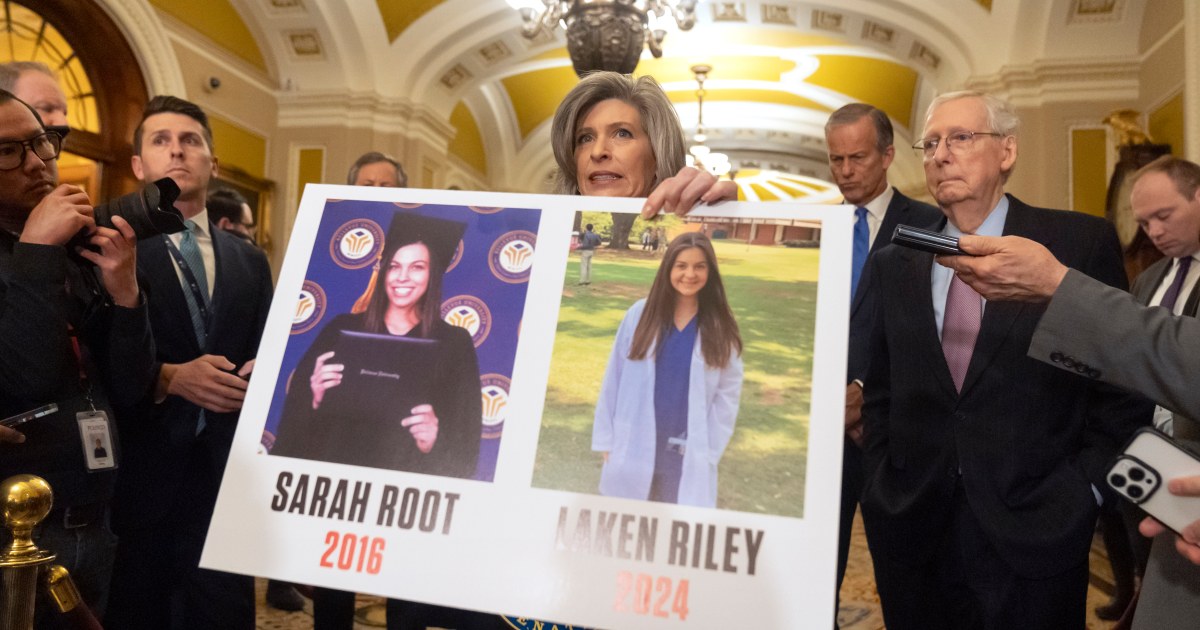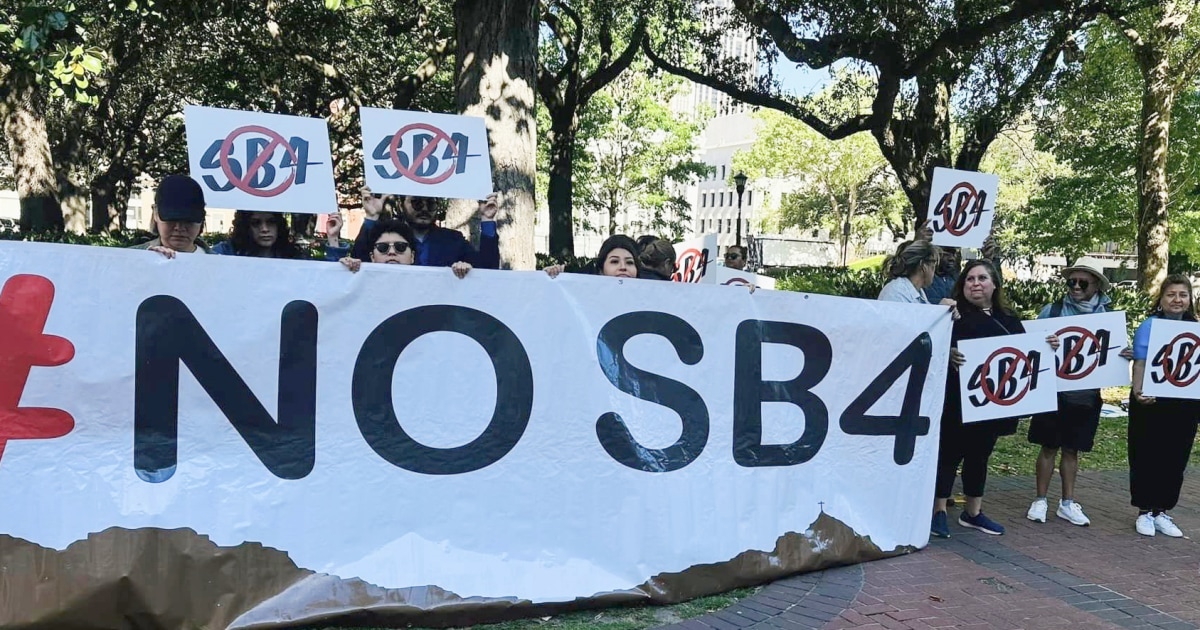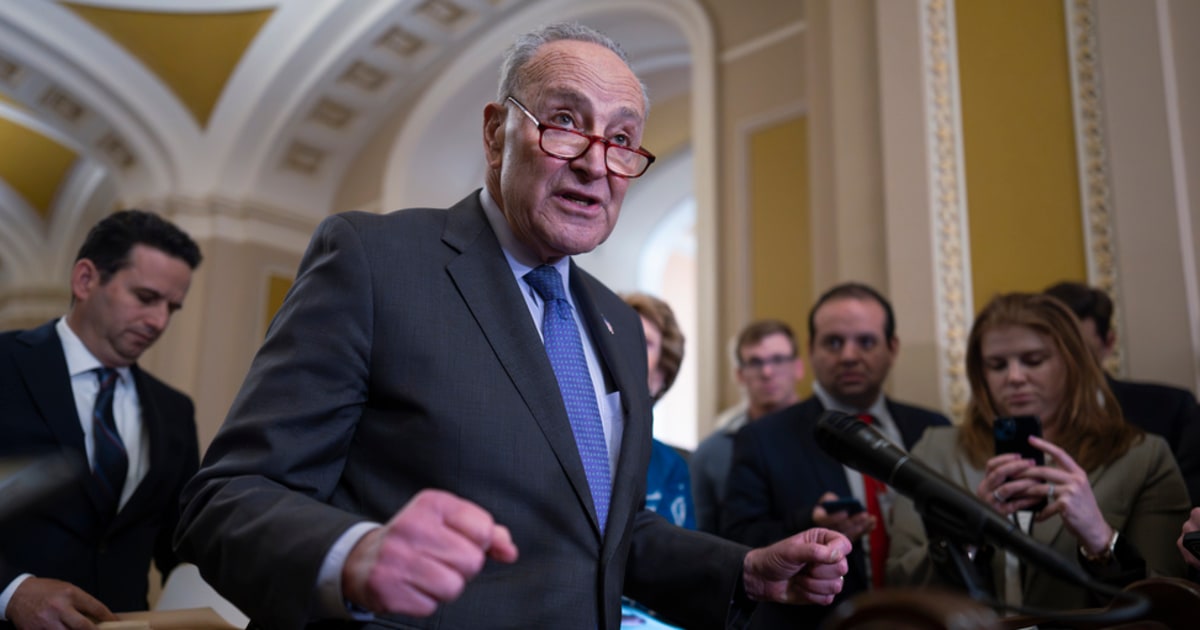The ambitious bill promoted by the president, Joe Biden, with social and environmental measures will include, if finally approved by the Senate, one of the most far-reaching immigration reforms in the country's history, but it is far from offering a path to citizenship to the 11 million undocumented.
About
seven million people could
apply for work and travel permits, and other benefits such as driver's licenses.
The budget project, of 1.75 billion dollars, obtained the approval of the House of Representatives last Friday and now must be discussed in the Senate.
To be approved, it is enough to have the support of all the Democratic senators, but it does not seem easy to reach that consensus.
Biden, in any case, hopes to be able to sign it into law before Christmas.
[Biden promises "better roads, bridges and airports" after the signing of the infrastructure law]
Immigrants and activists have marched numerous times to Congress to ask for a path to citizenship in the spending bill, but both Democratic attempts on the matter failed.Andrew Harnik / AP
The immigration proposal included in the legislative project is less ambitious than what Biden initially proposed.
This is the detail of the measures known as
plan C:
Temporary stay permit.
The undocumented will be able to request
parole
or temporary residence permit if they pay a fee and pass a background check.
For this they must have arrived before January 2011 and have lived here since then.
Protection from deportation.
About 65% of the undocumented who live in the country could thus obtain protection against deportation for almost a decade.
Most of the potential beneficiaries come from Mexico and Central America.
Authorization to work.
Immigrants could apply for a work permit that lasts five years and can be renewed once for a cost of $ 410.
It would end in 2031.
Travel and driver's licenses.
They would be allowed to apply for authorization to travel to their home countries and would also be eligible for Real ID compliant driver's licenses and state IDs. However, pro-immigrant organizations like Make the Road New York have warned that the travel permit would cost $ 575 and would take months to be approved, and license eligibility would vary from state to state.
Federal aid and programs.
Although immigrants would not have access to Supplemental Security Income (SSI), except in exceptional cases, they could apply for federal financial aid for study, Obamacare and children's health insurance (CHIP).
And, after five years of waiting, to the SNAP nutrition program and temporary cash assistance TANF, according to an analysis of the proposal of organizations in favor of immigrants.
[The number of immigrants detained and later released with a GPS shackle breaks a record]
From maternity leave to disaster relief
Biden's plan, under the name Build Back Better, also includes a series of measures that can impact the lives of Latino families and low-income immigrants.
Here are some of them, based on summaries provided by the White House and the House of Representatives:
Medical and family leave.
Starting in 2024, workers could receive up to four weeks of paid leave for the arrival of a child, to care for a family member or for illness.
Education.
A universal pre-kindergarten is established for 3- and 4-year-olds and there would be childcare subsidies for low-income families for a period of six years.
There would also be $ 40 billion for college education and job training.
Access to health.
Some Medicare coverage (hearing aids, insulin costs, home health care) would be expanded and improved, and a program would be established to negotiate drug prices.
Tax credits would also be extended to cover Obamacare premiums.
There are also funds for maternal health and nutrition, among others.
Living place.
About $ 150 billion would go to provide more than one million new single-family and rental homes.
Tax exemptions.
Two tax credits granted in the pandemic, one for families with children and one for low-income workers without children, would continue for another year.
There would also be clean energy credits that would help businesses and homeowners switch to renewable energy sources.
Help against natural disasters.
$ 105 billion would be invested to help communities with extreme weather events.
There will also be investments to develop solar energy technology.
A residence permit, without citizenship
Biden promised a law in January granting a path to citizenship for the 11 million undocumented, but negotiations with Republicans failed.
The Democrats then decided to resort to the
reconciliation
process
.
[Thousands of immigrants who were quickly released at the border will have to appear before a judge]
The Speaker of the House of Representatives, Nancy Pelosi, Democrat of California, celebrates with other legislators of the party the approval of the social and environmental plan, giving a victory to the president, Joe Biden, on November 19, 2021. J. Scott Applewhite / AP
First, an attempt was made to introduce the path to citizenship within the spending law, which at the time amounted to more than $ 3.5 trillion.
But the Senate parliamentary adviser, Elizabeth MacDonough, who is in charge of interpreting the internal rules of that legislative arm, considered that their inclusion was not possible.
A second proposal, which asked to change the date of entry into the country that is required for immigrants to apply for an adjustment of status in the Registry Act, was also rejected by MacDonough, arguing that it is
a weighty policy that should not be dealt with. within the budget law
.
Democrats assure that the migration issue has an economic impact, particularly given the shortage of labor throughout the country and the essential contribution of migrant labor in the pandemic.
If the parliamentarian rejects this
plan C
, the Senate will have to decide whether to elaborate another proposal or ignore her advice and approve it.
[Migrants charged $ 1 a day to clean in detention centers. Now they owe them 17 million]
The Senate must decide on the immigration reform included in Biden's social plan
Nov. 20, 202100: 32
Democrats
need the vote of their 50 senators, unanimously,
as Republicans have expressed their total rejection.
Whether they will succeed in doing so is still uncertain as key players like Sen. Joe Manchin, D-West Virginia, have been reluctant to give the go-ahead.
Although other policies such as updating the registration date would possibly have greater and long-term benefits than just the residence permit, the plan under debate would be a big step: Congress has not passed a citizenship bill since 1986. Those regulations allowed for the adoption of a path to citizenship for nearly three million immigrants.
With information from
The Washington Post
and
The Associated Press
.





/cloudfront-eu-central-1.images.arcpublishing.com/prisa/YTHAYNQJRHOBVAPYHAT3GYMEHU.jpg)








